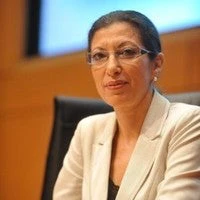
Strong and effective financial reporting rarely grabs headlines, but the vulnerabilities created by weak or ineffective systems of financial reporting certainly do – a number of well-publicised accounting scandals come quickly to mind.
At the Governance Global Practice we are working to ensure that developing countries grow their economies on solid foundations , with appropriate accountability frameworks that are effectively enforced.
Key to driving change in this area is the global accountancy profession and I am looking forward to meeting with leaders from many developing countries at the upcoming Accountancy Development for Results global event in Rome on November 10. This will take place on the occasion of the World Congress of Accountants.
Accountancy: Framing the Future will consider some of the gaps which have emerged in developing economies in areas such as public and private interests, governance, technology and the labour force. These economies need better investment climates; opportunities for SMEs to access finance; improved public sector governance; a workforce with the skills and competencies to work in the modern marketplace, and commitment to tackling endemic corruption.
We will be taking a solutions-focused forward look next week at how we in the World Bank can deepen our engagement with the profession, in partnership with the International Federation of Accountants and in particular with Professional Accountancy Organizations (PAOs), to build robust and effective systems of governance. The discussion will focus on several areas:
- We are all only too aware of the problems weak governance creates for economic performance and global financial security. The accountancy profession may have had its own struggles in the past, but much has been done recently. Being the largest self-regulated profession, it can play an important role as advocates for strong governance. Public oversight of the accountancy profession in the developing world will give greater credibility to calls for engagement in broader governance debates.
- Financial literacy is often a problem in developing countries, and there can be a wide skills gap between the qualified accountant and others performing accounting tasks. The title “accounting technician,” for example, can cover a range of important roles supporting every type of business and government. Empowering accountants and technicians by giving them opportunities to learn and acquire new skills is of critical importance to both.
- Technology is increasingly at the heart of business and offers enormous potential, especially to smaller and micro businesses, through use of intelligent accounting systems. The accountancy profession needs to adapt and embrace modern tools and information technology but buying software can be expensive and a challenge when it comes to compliance and language. We are working on some solutions and I hope during these discussions, we will be identifying other options together.
- A well-managed public sector brings clear benefits to the whole of society, and there is undoubtedly scope in many countries for the accountancy profession to be more engaged with national governments in shaping legislation and financial reporting frameworks that are effective without being overly complex or burdensome.
Accountancy Development for Results seeks to be a dialogue between the World Bank and the global accountancy profession. The first conference in 2011 focused on using the insights gained from the World Bank’s Reports on the Observance of Standards and Codes in Accounting and Auditing (A&A ROSCs) to develop practices and capacities that can deliver real economic benefits.
We hope this event will be as engaging and useful, and I am hoping we will hear some examples of successful engagements, dialogue and outcomes in the public and private sectors that others may be inspired to try.
I would love to hear your thoughts and ideas on these topics. Comment here or engage with us on Twitter.
For the comple Accountancy Development for Results event agenda, please click here.


Join the Conversation